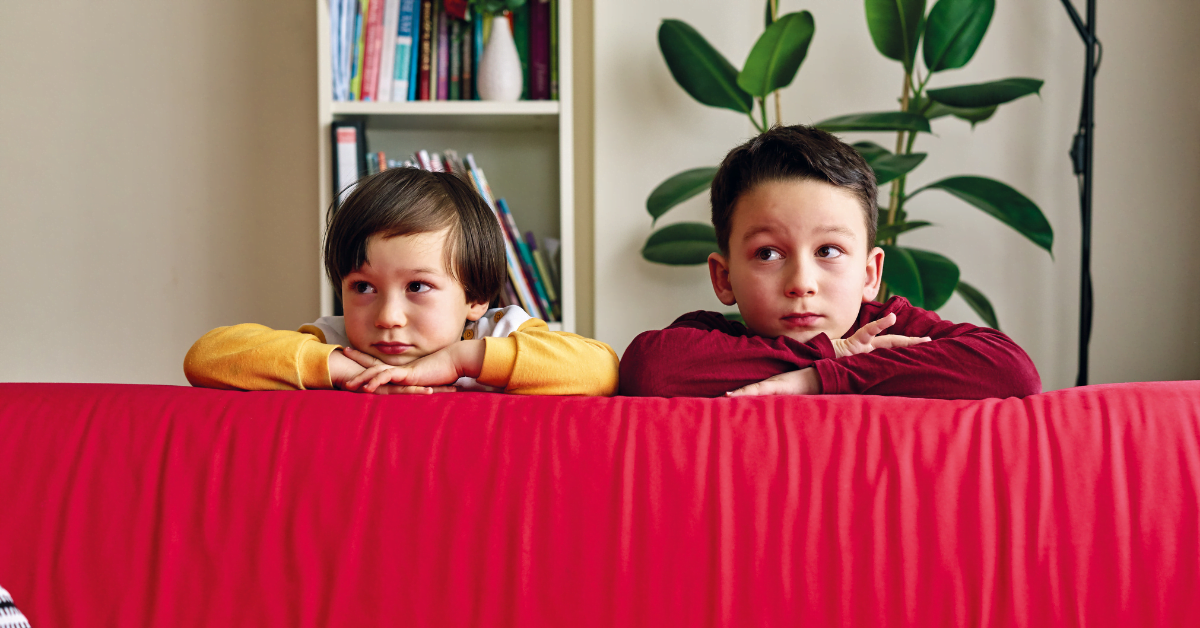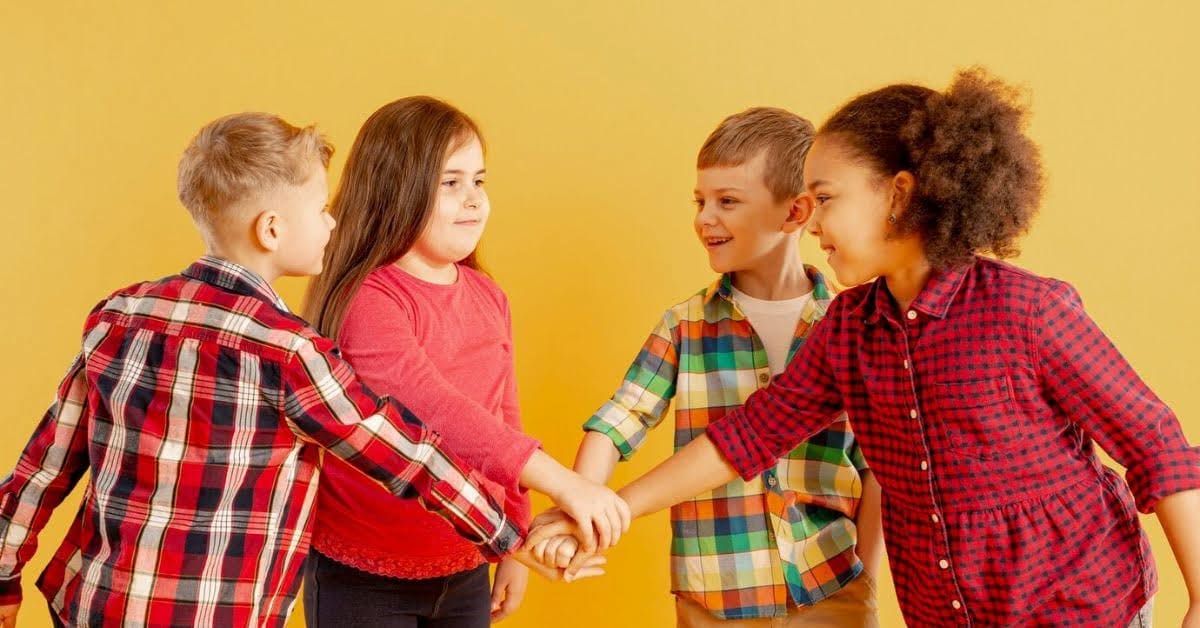It is often said that children’s minds are like sponges, quick to absorb the information presented to them, making this the perfect time to start cultivating essential skills and healthy habits that will lay the foundation for a lifetime. As parents, our duty extends to fostering character, virtue, and a strong spiritual foundation in our children.
In this article, we’ll explore five early childhood skills—cleanliness, decision-making, time management, personal hygiene, and positive interactions—and offer practical tips to guide you in this journey of parenthood.
Discover 5 Key Early Childhood Skills List that Every Parent Should be Aware Of
Harnessing the building blocks of success begins with a comprehensive exploration of the essential foundation – the early childhood skills list. Delve into the pivotal aspects that lay the groundwork for lifelong learning and development as we unravel the key components shaping a child’s early years.
1. Responsibility
Instilling a sense of responsibility in your little ones is crucial for their overall development. Proverbs 22:6 (New International Version) guides us: ‘Start children off on the way they should go, and even when they are old, they will not turn from it.’
As parents, we are called to nurture good habits that reflect responsibility, recognizing the profound impact they have on our children’s overall development. You can start by helping them build good habits, such as cleanliness, which is key to shaping them into responsible individuals.
So, what are some small habits that you can start doing together? Try inviting them to do simple tasks after dinner, such as wiping dishes that are already washed or putting away toys and Legos at the end of playtime.
This way, children not only help maintain neatness but also learn how to take responsibility. As they grow older, they will become more organized, collaborative, and understand the role each person plays in maintaining a shared living space.
Encouraging your kids to keep things tidy goes a long way! It’s not just about being responsible; it also makes your home a more comfortable and happy place.
When they help out with little tasks like wiping dishes or cleaning up toys, they’re not only making the space neater but also learning an essential point: a clean space means less stress, more comfort, and a positive environment for everyone.
As they get used to these habits, your children are not just cleaning up now – they’re building skills that will stick with them for life.
Read more: Self-Management Skills for Students That Are Easy to Follow
2. Decision Making
Imagine your child as the captain of their own ship, navigating through the vast sea of choices that come their way every day, be it big or small. Whether it’s picking their favorite toy or deciding on the game for playtime, these choices are like building blocks for their future. Learning to make decisions isn’t just about making choices; it’s about empowering them to feel confident, take charge, and become more independent.
To help kids develop decision-making skills, it’s beneficial to start small. Begin with seemingly tiny decisions, such as asking them what snack they’d like or which book they want to read before bedtime. These may appear insignificant, but they serve as practice runs for the bigger decisions that will inevitably come later in life.
Encouraging your child to talk about their thoughts is another essential aspect. For instance, if they’re torn between two games, ask them what they enjoy about each one. Engaging in these conversations helps them understand their preferences and feelings.
Considering consequences is the most important key lesson in decision-making. Help them see that every decision has a consequence. If they choose to play outside instead of finishing homework, they might miss out on playtime later. It’s not about scaring them but about imparting an understanding that choices come with results, whether it’s a good or bad result.
3. Time Management
Teaching children about the essence of time from an early age becomes a foundational aspect of their development, preparing them for a purposeful and enjoyable life. Therefore, taking the lead and teaching children early on can be immensely beneficial for their development. Like Ecclesiastes 3:1 (New International Version) reminds us that: ‘There is a time for everything, and a season for every activity under the heavens.’
In the process of growth, teaching children about time will enable them to manage their daily routines and develop basic skills. Guiding children through the simplest ideas of division helps parents create a routine. Developing an organized framework also helps in the building process of these skills.
Getting used to such an organization from early childhood creates a foundation for orderliness in adulthood. This prepares them to lead more enjoyable and purposeful lives as time goes by. In these first lessons on the cadence of the clock, parents become co-pilots, steering their little ones into a time that works with them rather than against them. Examples of this point include:
a. Mastering Their Morning Routine
Consider a morning routine where you introduce the concept of time management to your children. Instead of a rushed morning, you can allocate specific time slots for various activities. You can say, “Let’s spend 15 minutes getting dressed, 10 minutes for breakfast, and then 5 minutes brushing our teeth.”
By breaking down the morning into manageable chunks, your children learn to associate specific timeframes with each activity, fostering an early understanding of time management.
b. Playtime Management
During playtime, you can incorporate time management skills by introducing a timer. Setting a timer for activities, like playing with toys for 20 minutes, teaches children the art of adhering to time limits. You can say, “Let’s play with your toys until the timer goes off.”
This simple exercise helps children grasp the concept of time limits for different activities. The timer becomes a cue for transitioning between activities, promoting effective task management, and enhancing fine motor skills through purposeful play.
c. Bedtime Routines
Bedtime routines provide an excellent opportunity for you to instill time management skills. Rather than a vague “it’s bedtime,” you can say, “We have 10 minutes for reading, 5 minutes for brushing teeth, and then it’s lights out.”
This approach not only creates a structured bedtime routine but also helps children associate specific timeframes with each step, contributing to improved social skills and a smoother transition to sleep.
The structured bedtime routine, with its time-related associations, provides a soothing and predictable transition to sleep. Children, aware of the approaching endpoint in their routine, can mentally prepare for bedtime, reducing potential resistance or anxiety. This predictability contributes to a smoother transition to sleep, promoting not only healthy sleep habits but also emotional well-being.
Bedtime routines also serve as intimate moments of connection between parents and children. Breaking down the routine into specific time slots allows for shared activities, such as reading together or helping each other with teeth brushing. These shared experiences create bonding opportunities, fostering improved social skills as children learn to communicate and collaborate within the framework of the bedtime routine.
Read more: Tips for Mindful Parenting in the Digital Age
d. Task Time Slots
In daily activities, you can allocate specific time slots for tasks like homework or chores. By saying, “We’ll spend 30 minutes on homework, followed by a 10-minute break,” children learn to manage their time effectively, preventing feelings of overwhelm and promoting focused work periods.
These examples showcase how parents are able to seamlessly integrate time management lessons into everyday routines, nurturing a child’s ability to manage time and fostering a balanced development of gross motor skills, social skills, and play. The incorporation of time-related concepts into daily activities creates a holistic approach, enabling children to navigate life’s demands with confidence and purpose.
4. Personal Hygiene
Teaching personal hygiene to children is not just about cleanliness; it’s a crucial aspect of their overall well-being and development. In the early years of childhood, instilling good personal hygiene habits goes beyond the basics – it’s also a great way to promote a healthy lifestyle and a sense of responsibility. Beyond the prevention of illness, proper personal hygiene contributes to a child’s self-esteem, confidence, and social interactions.
Children often learn by observing, so you can model good personal hygiene practices. Whether it’s brushing teeth, washing hands, or maintaining cleanliness, showcasing these habits in a positive and consistent manner sets a powerful example for children to follow. The variety of practices within personal hygiene becomes a canvas for parents to impart a diverse range of habits, laying the groundwork for a comprehensive understanding of self-care.
a. Make it a Fun Routine
Transforming personal hygiene into a fun routine can make it more engaging for children. Introduce colorful toothbrushes and flavored toothpaste, or sing a short song during hand washing. Turning these activities into enjoyable rituals can cultivate a positive association with personal hygiene practices.
b. Create a Hygiene Chart
Visual aids, such as a hygiene chart, can make the learning process more interactive. Craft a chart that encompasses a variety of tasks like brushing teeth, washing hands, and bathing. This dynamic approach allows children to actively participate by placing stickers or marking each completed activity.
The variety of tasks represented on the chart not only makes the learning experience more engaging but also provides a visual representation of progress, instilling a sense of accomplishment and motivation to consistently engage in personal hygiene habits.
5. Positive Interactions
Helping kids understand how to be kind and polite is a vital part of their growth. It’s not just about using words and phrases like “please” and “thank you”; it’s about building friendships and creating a positive atmosphere. As we discussed earlier, kids often learn by watching, especially from their parents.
When parents show kindness by using nice words with others – like thanking someone for opening a door or being polite to waitstaff – kids notice and learn. Encouraging positive interactions helps shape a child’s character and teaches them how to connect with others in a thoughtful and friendly way.
In addition to parental influence, nurturing a child’s understanding of kindness and politeness can also be reinforced through storytelling. Sharing biblical narratives such as the parable of the Good Samaritan (Luke 10:25-37) can illustrate the profound impact of compassion and selflessness. Through these stories, children can grasp the importance of reaching out to others in need and treating everyone with respect and empathy, regardless of differences. By incorporating these timeless teachings into everyday conversations and activities, parents can instill values that extend beyond mere words, guiding their children toward a lifetime of meaningful connections and positive contributions to society.
Conclusion
In the journey of parenting, laying a strong foundation for children’s future is paramount. There are five fundamental early childhood skills—responsibility, decision-making, time management, personal hygiene, and positive interactions—that parents need to understand. Firstly, responsibility begins with small habits like cleanliness, fostering a sense of accountability in children. Secondly, decision-making empowers children to navigate choices confidently, laying the groundwork for independence. Thirdly, time management, taught through structured routines, equips children with essential life skills for effective task management. Additionally, personal hygiene goes beyond cleanliness, promoting self-esteem and well-being. And lastly, positive interactions teach children kindness and empathy, shaping their character and fostering meaningful connections with others.
During the foundational years, parents play a pivotal role in shaping essential skills for a lifetime. From responsibility to positive interactions, each skill contributes to a child’s holistic development. As captains of their journey, parents mold character and instill values that last a lifetime.
At Sekolah Pelita Harapan, our Early Childhood Program prioritizes holistic development, offering a nurturing environment where potential is celebrated. Join us in shaping this impactful journey for the future of our children. Get connected with us to explore more about our Early Childhood Program.
At Sekolah Pelita Harapan, we are dedicated to partnering with parents to foster holistic growth in children. Our commitment extends through the Early Childhood Program and a comprehensive Parenting Program, ensuring the optimal growth experience for every family.
Explore more about our Early Childhood Program and Parenting Program to learn about the enriching experiences we offer. Take the first step towards unlocking your child’s potential by enrolling them in our transformative learning programs. Connect with us today to embark on a journey of lifelong learning and development with Sekolah Pelita Harapan.








